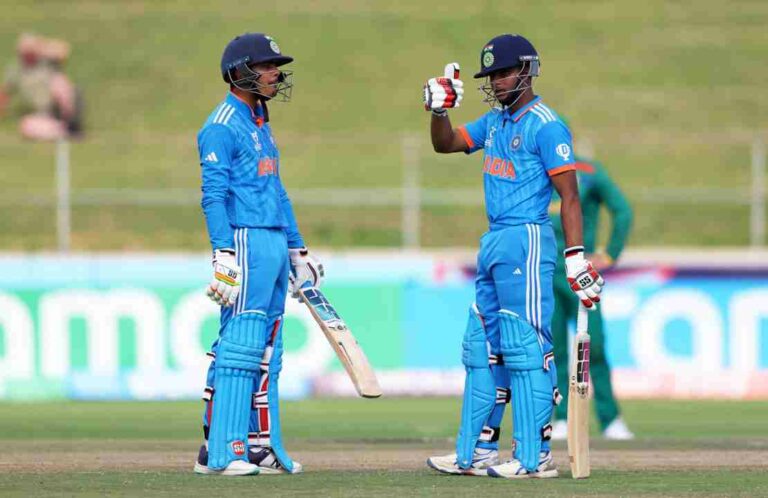How Cricket Teams Develop Effective Team Leadership
Lotus365, Gold365: Effective team leaders in cricket teams exhibit a strong sense of vision and strategic thinking. They are able to analyze the game situation quickly and make decisions with confidence to lead their team towards success. These leaders also possess excellent communication skills, enabling them to convey their ideas clearly to team members and inspire them to perform at their best.
Furthermore, successful team leaders in cricket teams demonstrate high levels of resilience and adaptability. They can remain composed under pressure, adjust their strategies as needed, and keep the team motivated during challenging moments in the game. Their ability to stay calm and focused serves as a source of inspiration for their teammates and contributes to a positive team dynamic.
The Role of Communication in Fostering Team Leadership
Effective communication plays a pivotal role in fostering team leadership within cricket teams. Clear and open lines of communication between team leaders and members are essential for ensuring everyone is on the same page and working towards common goals. Leaders who are adept at articulating their vision and strategies create a sense of cohesion and unity within the team.
Furthermore, communication is not only about conveying information but also about actively listening to team members’ feedback and ideas. Team leaders who practice active listening demonstrate respect for their teammates and create a culture of collaboration and inclusivity. By fostering a communication-rich environment, team leaders can build trust, strengthen relationships, and ultimately drive the team towards success on the cricket field.
Building Trust and Respect Among Team Members
Building trust and respect among team members is essential for creating a cohesive and high-performing cricket team. Trust is built through open communication, honesty, and reliability. When team members trust each other, they are more likely to collaborate effectively and support one another on and off the field. Respect, on the other hand, is earned through demonstrating competence, fairness, and treating others with dignity. When team members respect each other, they are more likely to value each other’s opinions and contributions, leading to a more harmonious team dynamic.
Setting Clear Goals and Expectations for Team Success
One key aspect of effective team leadership in cricket teams is the ability to set clear goals and expectations for the team’s success. By clearly defining objectives and outlining expectations, team leaders provide a roadmap for their team members to follow. This clarity helps align everyone towards a common vision, reducing confusion and ensuring that each individual understands their role in contributing to the team’s success.
Setting clear goals and expectations also helps in monitoring progress and evaluating performance. When team members know what is expected of them, they can measure their own progress against these benchmarks. This not only facilitates accountability but also enables leaders to provide feedback and support where needed. Additionally, clear goals and expectations create a sense of purpose and direction, motivating team members to strive towards achieving collective success.
Developing Strong Decision-Making Skills Among Leaders
Building strong decision-making skills is paramount for effective team leaders in cricket teams. The fast-paced nature of the game demands quick and well-thought-out decisions that can significantly impact the outcome of a match. Leaders must be able to analyze complex situations swiftly and make informed choices that align with the team’s goals and strategies. Developing the ability to make sound decisions under pressure is a key aspect of leadership in cricket teams.
Furthermore, strong decision-making skills enable leaders to navigate challenging situations with confidence and clarity. By being decisive, leaders can instill trust and confidence in their team members, fostering a sense of direction and purpose. Effective leaders in cricket teams are adept at evaluating various options, considering the implications of each choice, and ultimately making decisions that propel the team towards success on the field.
Encouraging Collaboration and Teamwork within the Team
To foster collaboration and teamwork within the team, it is essential for team leaders to create an inclusive and open communication environment where team members feel comfortable sharing their ideas and perspectives openly. By encouraging active listening and valuing each team member’s input, leaders can cultivate a culture of respect and cooperation that ultimately enhances team performance on the field.
Moreover, organizing regular team-building activities and exercises can help strengthen bonds among team members, improving trust and unity within the group. Emphasizing the importance of collective goals and highlighting the significance of working together towards a common objective can motivate team members to collaborate effectively and leverage each other’s strengths for the overall success of the team.
Providing Support and Motivation for Team Members
Supporting and motivating team members is a crucial aspect of effective team leadership in cricket. It is essential for leaders to create a nurturing environment where individuals feel valued and encouraged to perform at their best. This can be achieved through regular communication, recognizing achievements, and offering constructive feedback to help players grow and develop their skills.
Furthermore, leaders can provide support by understanding the unique strengths and weaknesses of each team member and tailoring their approach accordingly. By showing genuine care and empathy, leaders can build trust and rapport with their team, creating a positive and supportive atmosphere that fosters collaboration and high performance. In times of challenges or setbacks, offering encouragement and reassurance can help team members stay motivated and focused on achieving their goals.
Handling Conflict and Challenges Effectively within the Team
Conflicts and challenges are inevitable in any team setting, including within cricket teams. Team leaders must be adept at addressing these issues in a timely and effective manner to maintain team harmony and performance. It is crucial for leaders to approach conflicts objectively, understanding the root causes and perspectives of all involved parties. Open communication and active listening play vital roles in resolving conflicts before they escalate and impact team dynamics.
Effective leaders in cricket teams also understand the importance of addressing challenges proactively and collectively with the team. By involving team members in problem-solving and decision-making processes, leaders foster a sense of ownership and unity within the team. Encouraging open dialogue and brainstorming sessions allows for innovative solutions to be discovered and implemented, ultimately strengthening the team’s resilience and cohesiveness.
Leading by Example and Demonstrating Accountability
Team leaders in cricket teams play a crucial role in setting the tone for their teammates by exemplifying the values and work ethic expected within the team. By consistently demonstrating dedication, professionalism, and a strong work ethic, leaders can inspire and motivate their teammates to follow suit. Leading by example involves not just talking about what needs to be done but actually showing through actions how things can be achieved.
Furthermore, accountability is a key trait that effective team leaders possess. They take ownership of their decisions and actions, whether positive or negative, and hold themselves responsible for the outcomes. By being accountable for their contributions to the team, leaders set a standard of integrity and reliability that fosters trust and respect among team members.
Continuous Learning and Growth as a Team Leader in Cricket Teams
As a team leader in a cricket team, it is essential to prioritize continuous learning and growth. The dynamic nature of sports constantly presents new challenges and opportunities for improvement. Embracing a growth mindset allows leaders to adapt to changing circumstances and strive for excellence in their role.
Engaging in ongoing professional development, seeking feedback from team members, and reflecting on past experiences are valuable strategies for enhancing leadership skills. By remaining open to learning from successes and failures, team leaders can refine their approach, inspire their team, and elevate overall performance on the cricket field.
What are some key characteristics of effective team leaders in cricket teams?
Effective team leaders in cricket teams possess qualities such as strong communication skills, the ability to build trust and respect among team members, clear goal-setting abilities, strong decision-making skills, and a focus on encouraging collaboration and teamwork.
How important is communication in fostering team leadership?
Communication is crucial in fostering team leadership as it allows leaders to effectively convey goals, expectations, and provide support and motivation to team members. Clear and open communication helps in building trust and respect within the team.
How can team leaders build trust and respect among team members?
Team leaders can build trust and respect among team members by being transparent in their actions and decisions, actively listening to team members, valuing their input, and consistently demonstrating integrity and fairness.
Why is it important to set clear goals and expectations for team success?
Setting clear goals and expectations provides a roadmap for the team to work towards, helps in aligning efforts towards a common objective, and motivates team members to strive for excellence and success.
What role do decision-making skills play in effective team leadership?
Strong decision-making skills are essential for effective team leadership as leaders need to make quick and informed decisions that can impact the team’s performance and success. Decisive leaders inspire confidence and trust among team members.
How can team leaders encourage collaboration and teamwork within the team?
Team leaders can encourage collaboration and teamwork by fostering a culture of open communication, promoting a sense of unity and shared goals, recognizing and valuing individual contributions, and providing opportunities for team members to work together towards a common objective.
What is the importance of providing support and motivation for team members?
Providing support and motivation for team members helps in boosting morale, increasing engagement and commitment, and enhancing overall team performance. Leaders who offer encouragement and guidance create a positive and productive team environment.
How should team leaders handle conflict and challenges effectively within the team?
Team leaders should address conflicts and challenges promptly and constructively by facilitating open discussions, finding common ground, and seeking resolutions that are in the best interest of the team. Effective conflict management helps in maintaining team cohesion and harmony.
Why is it important for team leaders to lead by example and demonstrate accountability?
Leading by example and demonstrating accountability sets a positive tone for the team, inspires trust and respect, and reinforces the importance of integrity and responsibility. Team leaders who hold themselves to high standards serve as role models for their team members.
How can team leaders engage in continuous learning and growth to enhance their leadership skills?
Team leaders can engage in continuous learning and growth by seeking feedback from team members and mentors, attending leadership development programs or workshops, staying updated on industry trends and best practices, and reflecting on their own experiences and areas for improvement. Continuous learning helps leaders evolve and adapt to new challenges and opportunities in the dynamic field of cricket.







